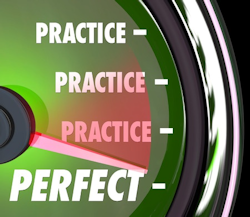- You are here:
- Home »
- Blog »
- Prepare for your IELTS Exam »
- How is your 2015 IELTS Practice Going?
How is your 2015 IELTS Practice Going?
 I was thrilled that so many IELTS students completed questionnaire in December and January almost 400 in total! Awesome! I also got to speak to 85 of you on Skype to find out what your challenges were and how you were preparing and also what your dreams for your future were.
I was thrilled that so many IELTS students completed questionnaire in December and January almost 400 in total! Awesome! I also got to speak to 85 of you on Skype to find out what your challenges were and how you were preparing and also what your dreams for your future were.
I am also thrilled to say that we are now working with some of you directly to improve skills and support IELTS preparation and practice.
So how is it going so far in 2015? I am sure many of you made a resolution to study harder for IELTS, make sure you got the exam this year or resolved to begin serious exam study for IELTS.
One of my resolutions for 2015 was to try and reach more IELTS students and help them to pass the exam. So if you want to be part of my statistics and are looking for support then you should make contact with me. All I ask you to do is to complete a questionnaire and then I’ll be in contact with you. Click here to apply
The funny thing about resolutions is that most of them get broken pretty soon after we have made them – I really hope that this hasn’t happened to you. We have a saying in English – ‘the spirit is willing but the flesh is weak’ – it is very true. If you have lost some momentum, don’t worry it’s never too late just get back up and start again. Don’t push yourself too hard – it’s not a good way to study and trying to cram too much in at once is counter-productive.
Pace yourself well and try to do a little every day if possible. Use your ‘dead’ time when you are travelling or waiting around. You could listen to something on your phone or read a model essay or learn some vocabulary.
If you haven’t even thought about your IELTS and how to get going with it then here are some things to consider doing to improve your English skills to make IELTS easier:
- Listen to something every day (news, a podcast, a story)
- Try to find somebody with whom you can practise speaking: a friend, a colleague – look online if there is no-one close to your place – and try to meet up regularly to speak, at least 2 or 3 times a week if you can
- Do the same with writing get someone else to look (the best would be a native or near-native speaker) they won’t be able necessarily to help you produce a great IELTS task but they will know if there are grammar mistakes and this is what loses most people marks in the writing
- Don’t try to do whole tests over and over – just do one reading passage or one listening section – choose the parts you find most challenging – it will be in these parts that you make the most mistakes.
Don’t make everything too difficult or you won’t achieve what you want to achieve. Improving language is a slow burn not a quick fix – you have to be patient, you have to practice regularly and systematically and if you concentrate on improving your English language skills (listening, speaking, writing and reading) rather than doing endless IELTS tests you will find that when you come back to the IELTS tests it will be so much easier – trust me.
Last Monday I was working with a student on a reading test. She was getting around 25 to 30 correct answers out of 40 (we are now close to the exam and so doing whole tests) but it was taking her 90 minutes and sometimes longer. We talked about her process and it turned out that she was doing some things that were taking a lot of time and not really serving her. I suggested another approach which she tried.
In her very next reading practice, using my process, she scored 37/40 which is awesome, but the best was that she manage to gain 30 minutes and completed the test in just 1 hour and 15 minutes! It will now be very easy to get that time down to less than 1 hour and also maintain the high score level – that is what can happen with the right techniques and smart practice!!
